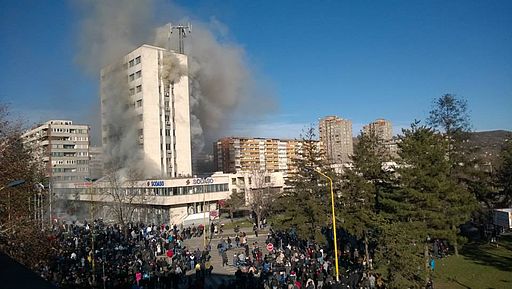The Protests in Bosnia: A positive signal?
Since its emergence as an independent country in 1995, Bosnia and Herzegovina has been facing significant problems. The roots of those problems are strong national animosities between the three main ethnic groups in the country: Bosnian Muslims, Serbs and Croats.
February 17, 2014 -
Zoran Vučković
-
Articles and Commentary

Photo: Juniki San (cc) commons.wikimedia.org
Because the constitutional structure of the country was a replication of national divisions, this often blocked the country’s main institutions. However, heavily backed by Western Europe, the United States and the United Nations, the country has managed to stay afloat despite the fact that some of the main politicians were openly declaring that a division of the country was a better solution than the existing stalemate.
This stalemate and inability to reach compromise were among the reasons why such institutions are weak and ineffective. Another problem is widespread corruption in the country. It affects all of society, especially the private sector which has not yet developed. Along with war damage, all this has led to a significant deterioration of the situation in the country. While neighbouring Croatia has joined the EU and Serbia has started accession negotiations, in Bosnia the dissatisfaction has led to mass protests. Not only is the economic situation in Bosnia worse than that of its neighbours, but also the stalemate in the county’s main institutions blocks any chance for improvement.
Such problems raise new questions regarding the institutional formula for Bosnia and Herzegovina. The nation needs a formula in which national animosities will not block the economic development of the country. At same time, the demonstrations are also a positive signal. The citizens have actively taken a stand regarding the main problems in the country and those are not of a national, but an economic nature. If this bottom-up initiative driven by economic reasons manages to force any changes in the country’s institutions it may also lead to the improvement of the international relations. And this only may increase the chances for the country’s long-term existence as the main national problems still remain unsolved.
Zoran Vučković has a PhD in political science and international relations. His interests focus on post-communist transformations in the western Balkans and Eastern Europe.

































